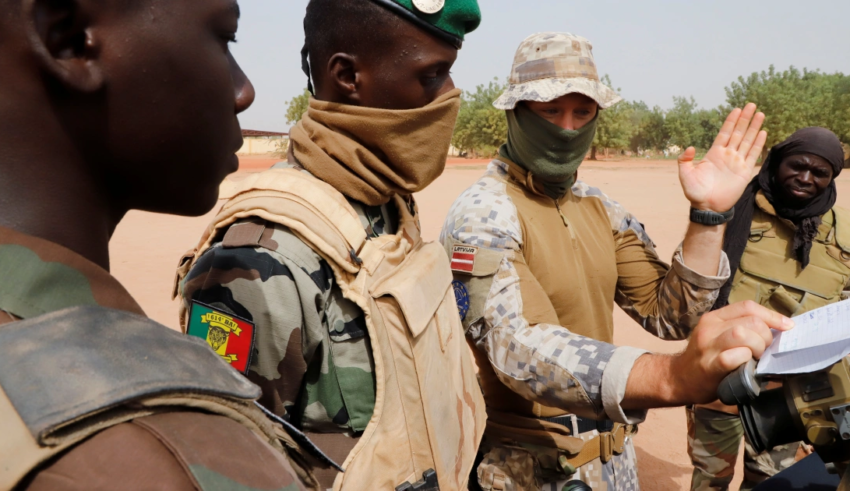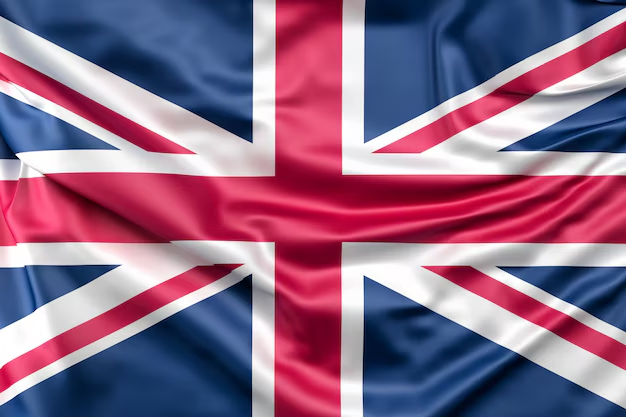
From the very beginning of 2013 international crisis management in Mali two missions saw the light of day : the multidimensional integrated stabilization mission of the United Nations (MINUSMA) and the EU training mission (EUTM). The latter is tasked with training and advising the Malian army to enable it to independently guarantee Mali’s security.
By making the presence of foreign military forces non-essential, EUTM Mali is part of the international exit strategy. MINUSMA’s mandate is to protect population and support the peace process between the government in Bamako and northern Malian rebels. In 2019, it added a mandate to stabilize central Mali, particularly the Mopti region.
European countries are starting to become reluctant to extend the mandates of their armies in these to missions. If extending the mandates this year will not be a no-brainer, there are a number of reasons: the Afghanistan fiasco, the Malian military’s rise to power, and the political rift between Mali and France, which has been the undisputed leader of the international coalition there. The rift between Bamako and Paris has been accompanied by the announced withdrawal of the French military (Operation Barkhane) and the Malian turn towards Russian partners, particularly the paramilitary group Wagner.
If the results of the 20-year presence in Afghanistan were already considered fragile, the Taliban’s renewed seizure of power in august 2021 has increasingly generated a disillusionment that now seems to be projected onto foreign missions in general. Consequently, foreign and security policy makers now turned their attention to Mali, one of the largest foreign deployment.
→ Negative trends
Putting the Mali mission to the test was overdue anyway: the situation in the country has not improved since 2013; in fact, it has deteriorated significantly since 2017. The central government in Bamako has successively lost territorial control, and jihadist groups have expanded their presence from the north to the center of the country, where jihadism, civil war, and interethnic conflict have intertwined to create a complex mess.
French counterterrorism efforts have not had a stabilizing effect, although numerous leaders of jihadist movements were killed during Operation Barkhane. Upgrading measures have only marginally improved the effectiveness of the Malian armed forces, as institutional reforms in the security sector have not progressed.
EUTM Mali and MINUSMA have at best slowed the worsening of the crises. However, the two missions have not succeeded in preventing the conflict from spreading to the neighboring states of Niger and Burkina Faso. Meanwhile, the northern regions of the coastal states on the Gulf of Guinea (Ivory Coast, Ghana, Benin, Togo) are threatened by violence and destabilization.
However, the negative trends did not result in any substantial strategic course corrections by the international community, as can also be seen in the mandates of MINUSMA and EUTM. Rather, the reaction has been “business as usual”. Existing efforts were intensified, and the approach remained essentially the same, which is lacking innovation. It consists of the triad of counterterrorism (Operation Barkhane), stabilization (MINUSMA and a patchwork of numerous bilateral and multilateral projects) and reinforcement (EUTM and other bilateral projects).
In Mali itself, mass protests against the government led to the overthrow of President Ibrahim Boubacar Keita by the military in August 2020. This has further complicated the political context in which stabilization approaches are being pursued. The junta is an uncomfortable partner. It enjoys considerable domestic political support because it has disempowered Mali’s established political class. To this date, its reluctance regarding the demands of the West African regional community ECOWAS and the EU to swiftly clear the way for democratic elections has weirdly only increased its popularity. Without prior political and institutional reforms, the widely held view in Mali is that elections are counterproductive as a democratic process. It is expected that ECOWAS mediators and the Malian government will soon agree on a compromise on the transition process, followed by elections. But this will by no means eliminate all the problems for the international partners, and stating to “come to a compromise soon” is a very thin statement.
The Malian military government is making, quite successfully in populist circles, the international community, and France in particular, responsible for the country’s messy situation. France pre-empted its expulsion by announcing its own military withdrawal from Mali, which will last until fall 2022.
For other troop contributors, this has a weighty consequence. The withdrawal of French military, including their drones, attack helicopters and combat aircraft, will significantly increase the freedom of movement of jihadist groups. The risk of attacks on international troops will then increase further, even though the European missions in Mali are generally operating very carefully and cautiously.
Another problem, from a European perspective, is Mali’s security policy turning towards Russia. The interstate cooperation of the sovereign Malian state cannot be criticized. The situation is different when it comes to the commissioning of the Russian group Wagner. Up to 1000 members of this company are now said to be in the country to assist the Malian army in upgrading and counter-insurgency operations. The fact that the Wagner Group is considered a foreign and security policy instrument of Moscow must be considered highly problematic in the context of the Russian invasion of Ukraine, especially since, according to information from the British government, the mercenary force is also being deployed in Ukraine.
Regardless, it is important to note the numerous human rights violations of which the Wagner group has been guilty in other conflicts, particularly in the Central African Republic. In early April, initial reports circulated of a massacre allegedly committed against civilians by Malian army members and Russian mercenaries as part of a counter-terrorism effort. The Malian army’s cooperation with the Wagner group is bad enough. What is probably unacceptable from a European perspective is the scenario of indirect triangular cooperation. That’s why there is a high probability that Malian recruits, who were trained by EUTM members, will find themselves in military operations with the Wagner group at some point.
All in all, the starting conditions for a continued engagement of the European soldiers with EUTM seem to be poor. The balance sheet is not satisfactory : the premises of democracy and human rights are unstable, Russian activities seem to rather worsen the chances of success, while the French withdrawal increases security risks for the remaining armies.
However, a distinction should be made between the two missions, their tasks and perspectives. Further participation in EUTM seems difficult to imagine under the given circumstances. This is compounded by the low Malian demand for EUTM given its partnership with the Wagner Group. It is to be expected that the EU will withdraw the mission as a whole from Mali, this would make it possible to step up rearmament activities in neighboring countries, with wouldn’t be such a bad idea. A further regionalization of EUTM could be an option for action if there is serious demand from individual Malian neighboring states.
The situation with MINUSMA is more complex. A withdrawal would be understandable under the given circumstances. However, after Afghanistan, it would definitely look like an admission failure of European stabilization policy. In view of the competitive international environment, it can be assumed that Europe’s ability to act in the Sahel will also be measured by strategic competitors such as Russia, China and Turkey. But it is not a good enough geopolitical reason to create a new defence policy for those strategic and influential zones at all costs.
However, European ability to act and reliability should be demonstrated not only to competitors but also to partners. For the West African states, who are directly affected by the Mali crisis, a complete European withdrawal from MINUSMA would be a fatal political and security signal, especially since no less than 65 percent of the MINUSMA blue helmets come from West Africa itself. The strategic goal in Mali has long since ceased to be to save Mali, but to prevent the destabilization of the entire region.
In Mali itself, new political opportunities may be opening up and could be tested. If a transition with a concrete timetable were to take place, its support as well as the preparation of the subsequent elections would be an obvious and important task that the UN Security Council could entrust to MINUSMA in cooperation with ECOWAS. The shadow casted by the war in Ukraine should not lead to a failure of learning from the Afghanistan and also the Mali situation. The question of why a mission like EUTM has little to show for definitely belongs on the agenda, as does a broader discussion about the missions, who are all too often related to military operations.
https://www.bbc.com/news/world-60419799
https://www.bbc.com/news/world-africa-61311272
By The European Institute for International Law and International Relations.














